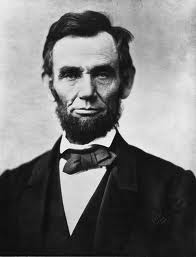Abraham Lincoln on Perspective Taking
 I write frequently about the importance of perspective taking in clinician/patient interaction. Seeing the world through other people’s eyes is also a crucial moral and political skill. No surprise then that Abe Lincoln showed great perspective taking abilities. Consider these words, from an 1854 speech on slavery:
I write frequently about the importance of perspective taking in clinician/patient interaction. Seeing the world through other people’s eyes is also a crucial moral and political skill. No surprise then that Abe Lincoln showed great perspective taking abilities. Consider these words, from an 1854 speech on slavery:
I think I have no prejudice against the Southern people. They are just what we would be in their situation.
Would love it if feuding politicians could embrace this wisdom more often today.
(Click here to view comments)
